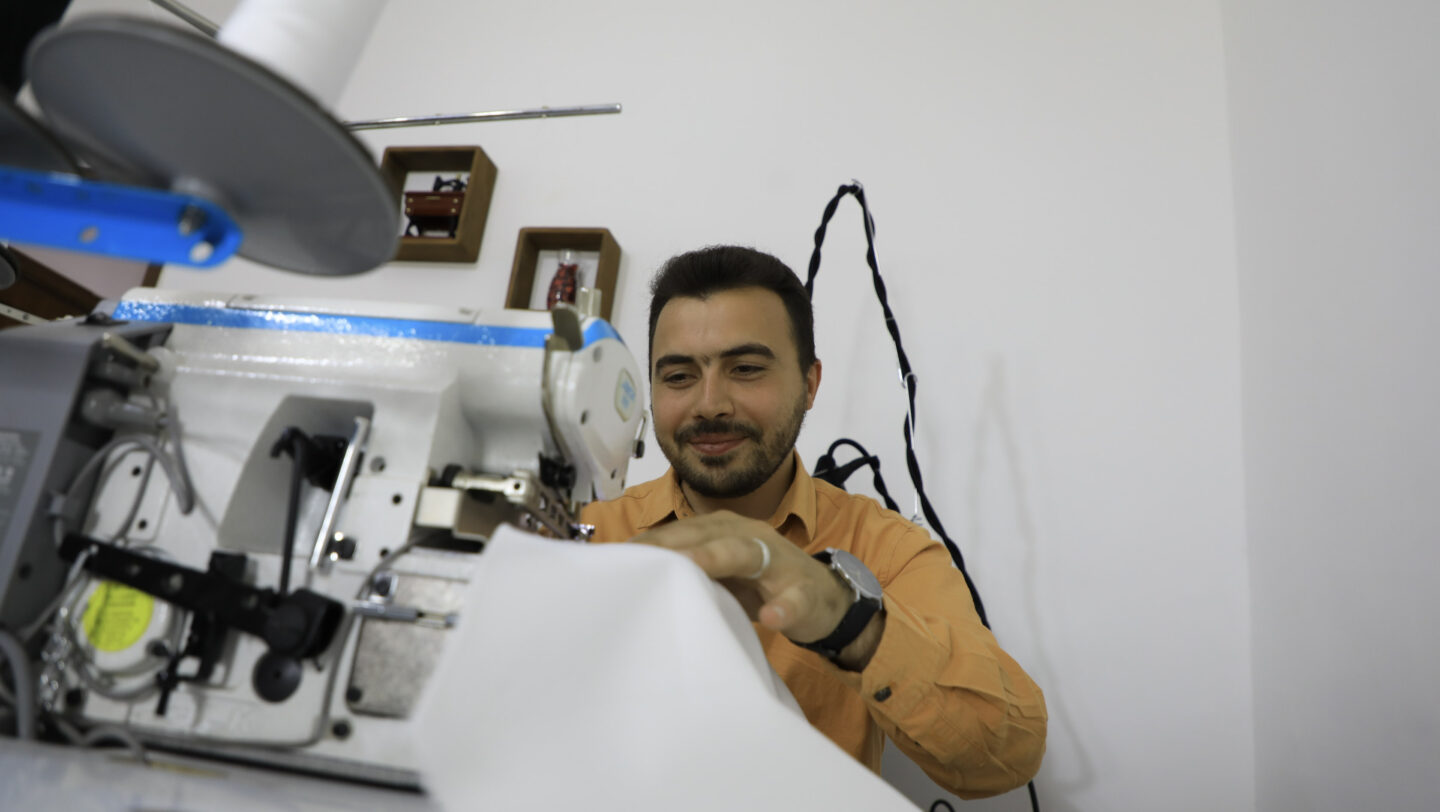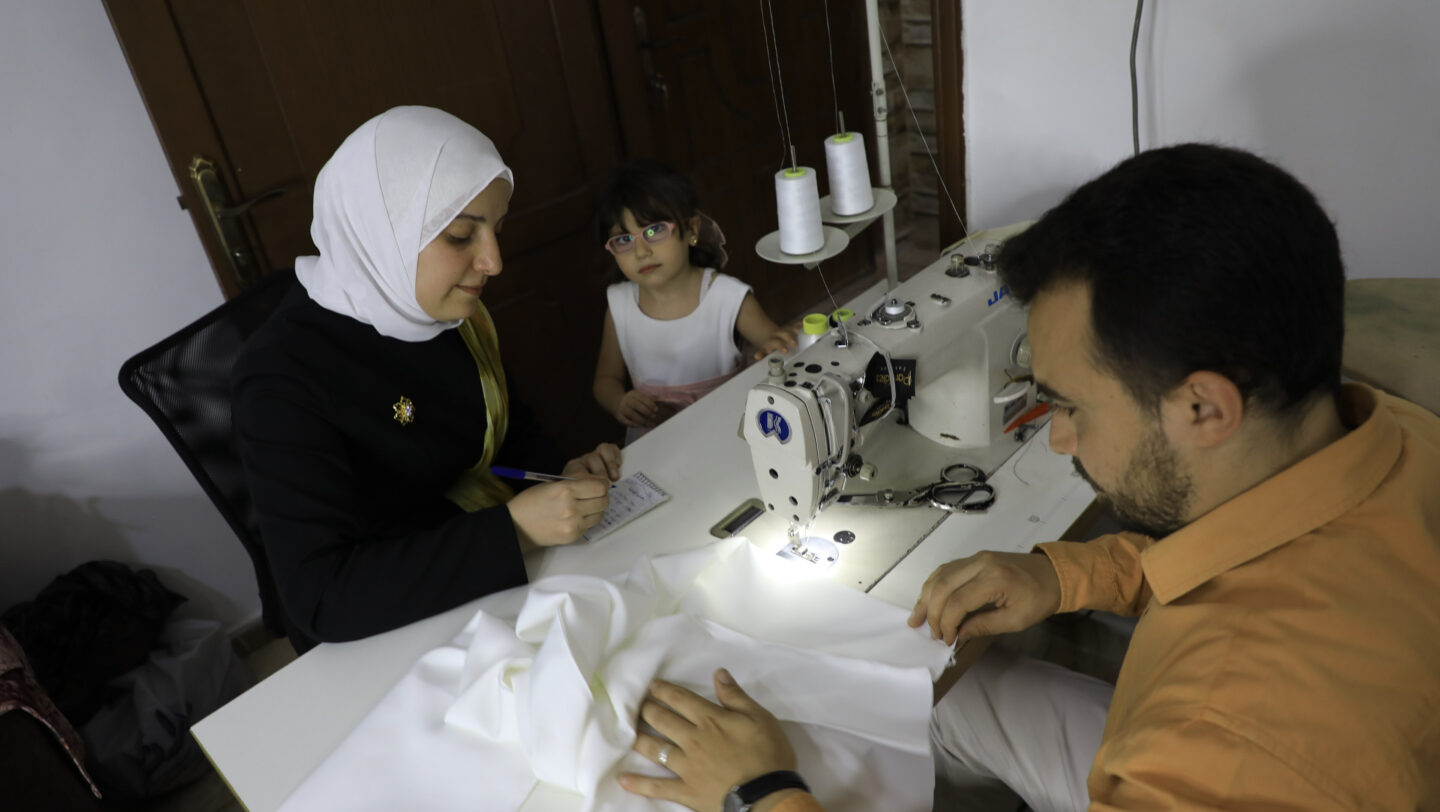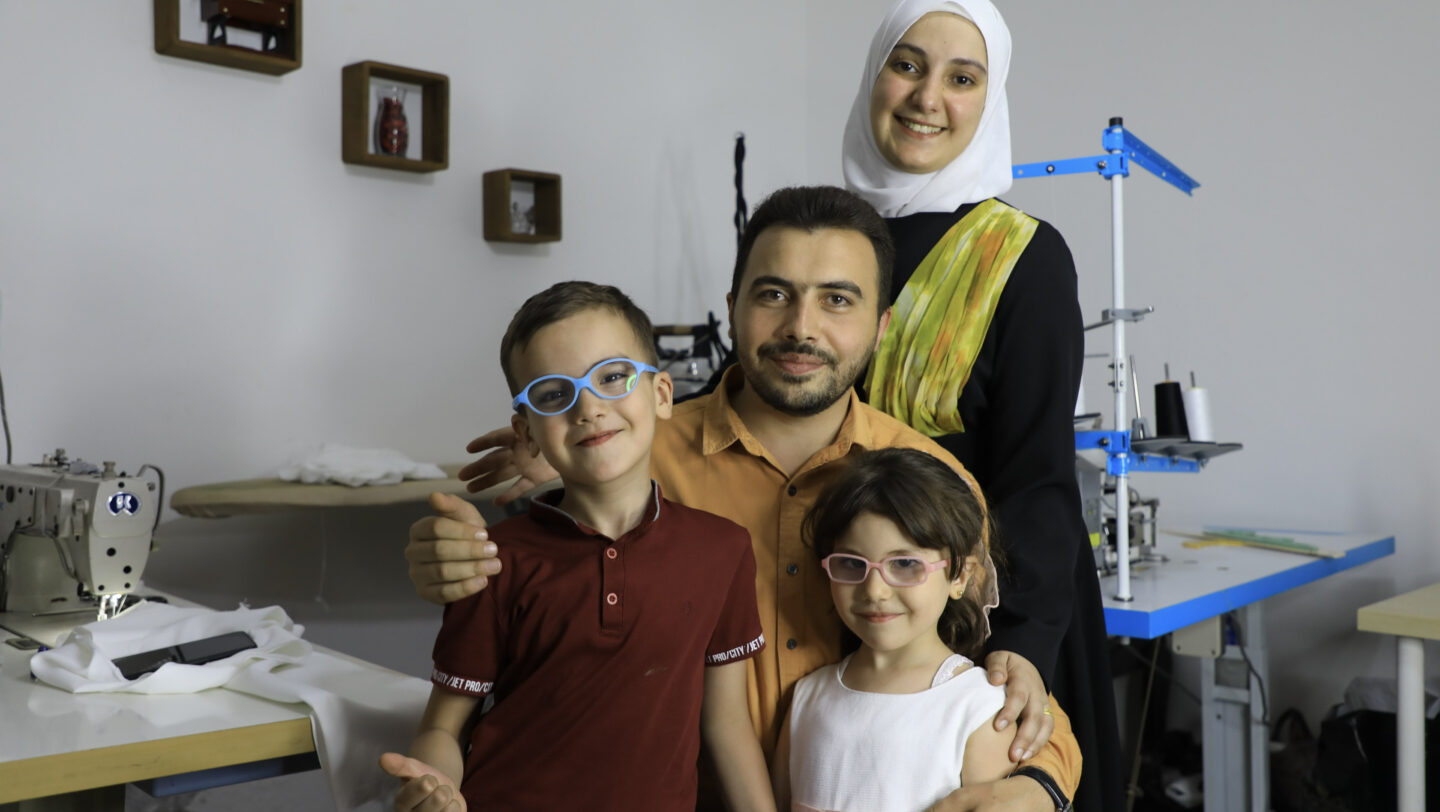Waseem Souda, Syrian refugee from Aleppo, in his workshop at home. ©UNHCR/Lilly Carlisle
Way before there were any stray bullets, or the terrifying sound of war ravaging the city of Aleppo from all corners, Waseem Souda was a child, learning the craft of sewing from his father. The crisis taught Syrians many things, but the most important one for Waseem was leaving the place where he spent his childhood, where he was born and raised, leading him to take his first professional steps in Jordan: a lone man with amateur craftsmanship.

Waseem Souda, Syrian refugee from Aleppo, in his workshop at home.
Talents like Waseem’s emerge in every corner of the world. In the midst of exile even, Waseem found his passion, set his target and chased his dream. And he demonstrates that you don’t have to be in Paris, Milan or Rome to thrive in fashion.
His career in fashion design began after he arrived in Jordan in 2012, in which he began learning and gaining more experience by taking various private sewing and fashion design classes. Day by day, he built a career that would help him overcome the bitterness of alienation, and ten years later, he set his print in the Jordanian fashion scene.
Waseem has worked for more than five different companies since his arrival, and he has always heard the same phrase from each of them: we will not forget you, and once we reach our goal, you will be promoted. Leaving him to devote all his energy, determination, and passion to assisting these businesses in achieving their goals. Waseem returned home one day, full of disappointment and grief, and it was at that point that his wife realized it was time to advertise Waseem’s name rather than continue as an unknown regular employee.
“After achieving their goals, I was always left with the same sentence: you’re just an employee who can be replaced, you did your job and nothing more”, Waseem said.
Last time he heard this sentence, the story changed and turned Waseem’s life upside down. Yumna, Waseem’s wife and staunch supporter, was convinced that Waseem couldn’t be replaced and that she never wanted to see disappointment in his eyes again. She came up with the idea of running their own fashion design and sewing business, which Waseem found difficult to implement due to a lack of funds and capacity.
Yumna did not give up and provided Waseem with the funds he required to launch this business. She also enrolled in an Education for Employment (EFE) digital marketing course, which taught her the fundamentals of digital marketing and advertising, which would help her run and manage the marketing and sales role. As a result, their business “Paradise Fashion” was founded on Waseem’s sewing and fashion design experience, with his wife handling the marketing and orders.

Waseem and wife, Yumna Otri, are preparing for an order.
Their business specializes in designing and sewing formal suites, matching sets, as well as formal dresses. After many challenges and long days of hard work, their business page grew from 200 followers to 95,000 in less than ten months and became well-known in the Jordanian market.
“I am extremely proud of this business, which began in a small room with two sewing machines and an iron, but with exceptional craftsmanship”, Yumna said.
Carrying the “refugee” label since his arrival in Jordan was never an impediment to him; rather, his determination played a larger role in pursuing his career and his life.
“I didn’t quit because of the title. I didn’t give up because I was a refugee. On the contrary, I considered this country to be my homeland after receiving kindness and support from the people here,” said Waseem.
Ten years later, Waseem noticed a significant improvement in his life which was the result of the various stages he went through, which included passion, determination, consistency, and his partner’s support.
In the future, they hope to open their own large stitched and shop where they will sell and design wedding dresses, engagement dresses, suites, and other formal wear for women. For them, this business is more than just Waseem and his wife; it is a heritage that will be passed down to their children.

Waseem pictured with his family
Share on Facebook Share on Twitter